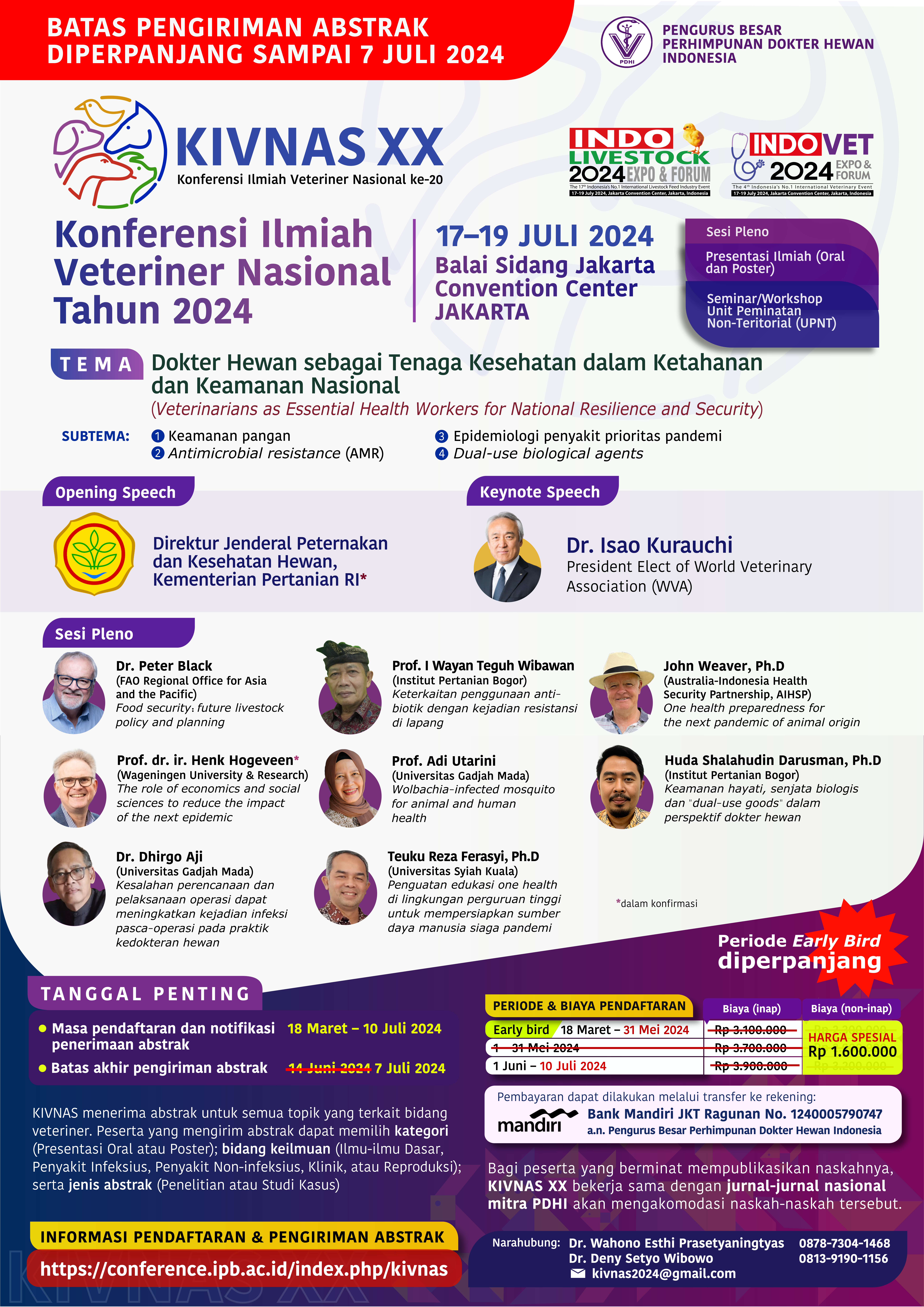Ginger Extract (Zingiber officinale Roscoe) as a Natural Antibacterial Agent against Salmonela sp.: An in Vitro Study
Keywords:
chloramphenicol, efficacy, inhibition zone, natural antibacterial agent, Zingiber officinale RoscoeAbstract
Background: The increase of occurrence of fowl salmonellosis impacts on the decrease of poultry production. The mitigation of this diseases is using antibiotic, and it can promote the antimicrobial resistance phenomenon. One of the procedures to handle it is using herbal derived antibacterial agent, including ginger (Zingiber officinale Roscoe).
Objectives: This study aimed to assess the efficacy of ginger extract as a natural antibacterial agent against Salmonella sp.
Methods: The ginger was dried and macerated using 96% ethanol. Further, a field isolate of Salmonella sp. was utilized in the study to evaluate its sensitivity to ginger extract compared to chloramphenicol. The in vitro study was conducted using the disk diffusion method (Kirby-Bauer method). Preceding the study, the isolate was cultured on agar and subsequently transferred into a liquid medium. The bacterial suspension was then inoculated onto Muller Hinton agar (MHA) and incubated for 24 hours at 37°C. Ginger extract was prepared in 10%, 20%, and 40% concentrations using dimethyl sulfoxide (DMSO) as solvent and applied to the MHA surface. The complete inhibition zone of the extract against Salmonella sp. was measured after incubation and examined using SPSS version 26.
Results: The findings revealed that all concentrations resulted in larger inhibition zones than the control and chloramphenicol (p<0.05). Moreover, the 40% ginger extract demonstrated the largest inhibition zone (p<0.05).
Conclusion: It can be inferred from the results that ginger extract holds promise as a natural antibacterial agent against Salmonella sp.



